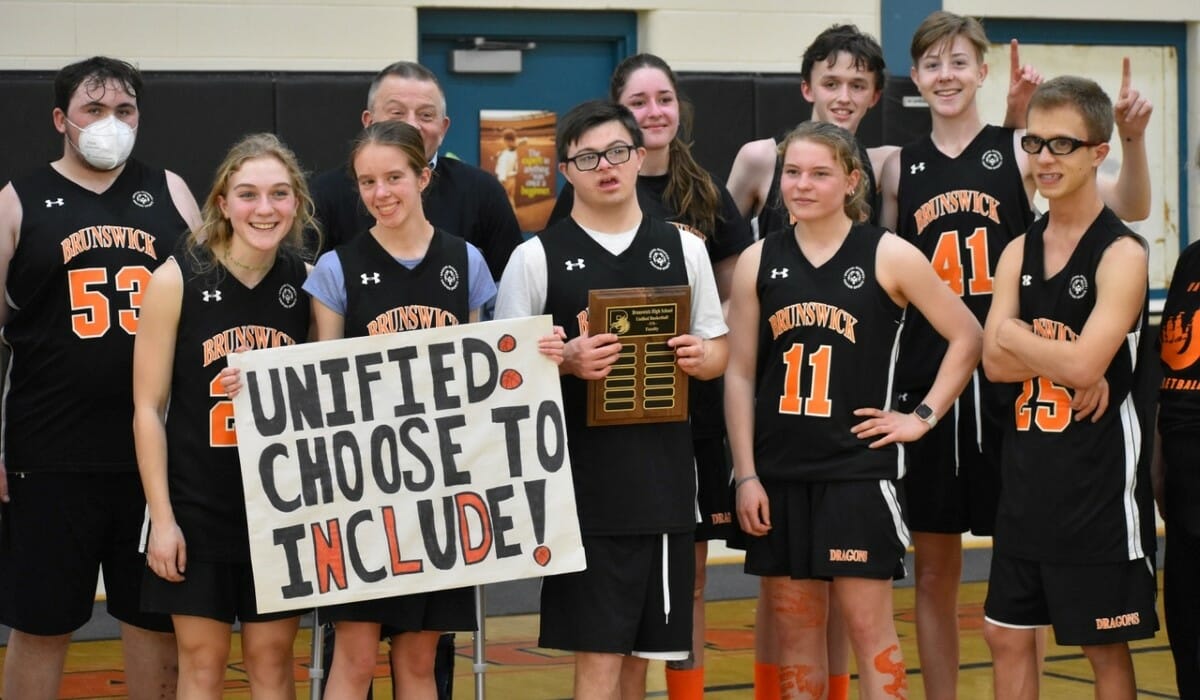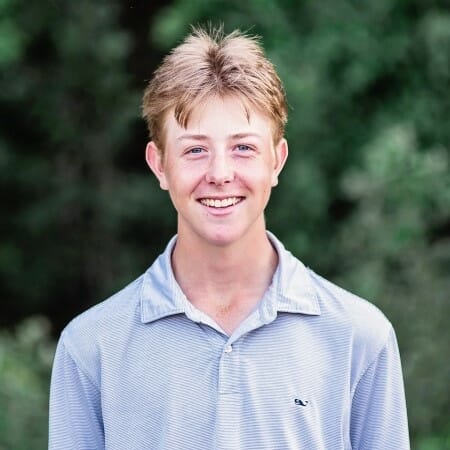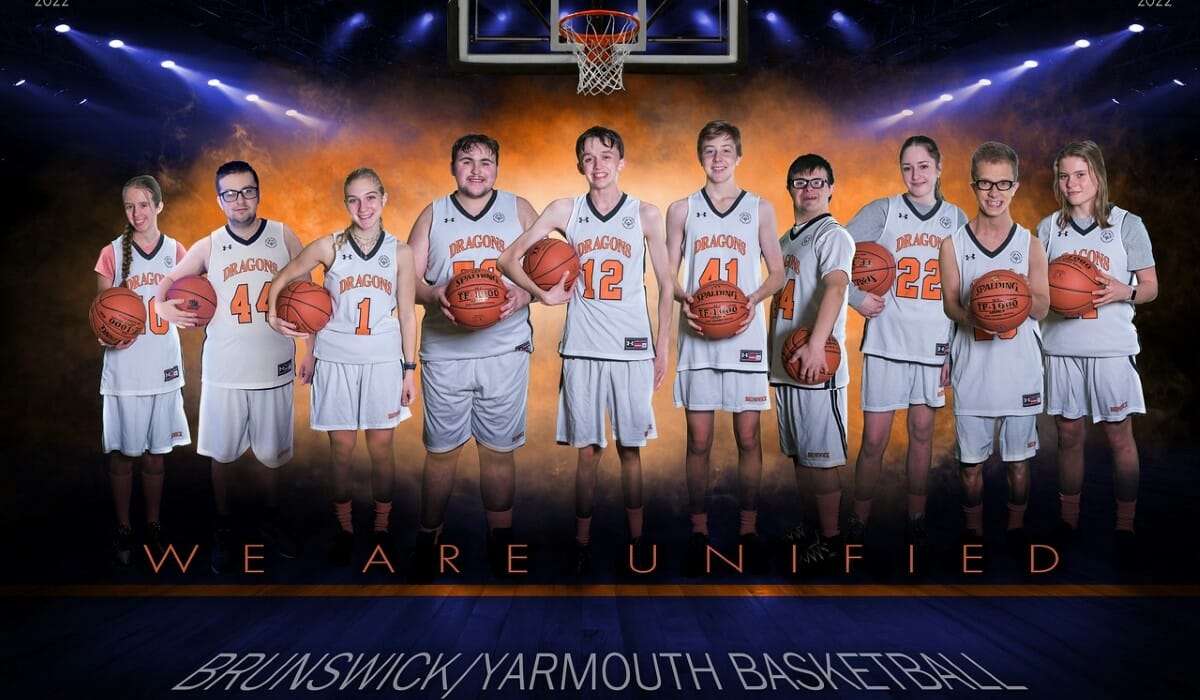After Diagnosis, Athlete ‘Plays’ it Forward to Special Olympics

Meet Daily Point of Light Award honoree Charlie Austin. Read his story and nominate an outstanding volunteer or family as a Daily Point of Light.
Seventeen-year-old Charlie Austin describes feelings of confusion and distress when he was diagnosed with a rare genetic heart condition as an adolescent, the diagnosis effectively putting an end to his competitive sports career.
“I was confused and upset because sports was everything that I had,” says Charlie. “That’s an age where sports is almost everything. I didn’t know what to do and I picked up golf and that’s good for summertime, but I used to play a lot of competitive sports including all-star baseball and basketball. I loved sports so much, I wanted to help other people get that experience and it makes me happy seeing kids get experience out on the court.”
Giving back to the passion that had given him so much joy, the Brunswick, Maine student started volunteering with Special Olympics Maine, an organization dedicated to providing sports training and athletic competition for children and adults with intellectual disabilities. Beginning his service as a middle school student, Charlie volunteered as an assistant coach and team manager for the Yarmouth and Brunswick Unified Basketball Team, and now that he’s older, Charlie plays on the court with the team.
His service has grown over the years, from launching an initiative called The Warrior Program during the COVID-19 pandemic, which provided funding to Special Olympics coaches to make and distribute motivational and instructional videos for athletes while unable to meet in person, and serving as a U.S. Youth Ambassador.

“I attended the 2022 USA games as an ambassador,” Charlie says. “That was really cool, everybody (from Special Olympics) in the country gathered and there were so many events. You can tell it means so much to these people. It’s so inclusive and kind and everybody is there just to have a good time. Doing (Special Olympics) locally is big and fun, but the USA games is an experience I’ll always remember and be happy to look back on. At first when I started volunteering, I did it for the athletes out on the court, but now it’s a dual thing I can do it for myself as well because I enjoy it so much. I just have a great time.”
The love for the game Charlie had as a competitive athlete has persisted throughout his volunteerism, a contagious feeling for everyone involved, he says.
“In a Unified game, so it doesn’t matter who scores or who has the ball, everybody is cheering and there are always smiles. When I’m out on the court, I’m trying to make the best experience possible. You almost recreate the competitive experience, but make it even better so people are happy and enjoying the game. I’ll take a glimpse over at the stands, people are smiling, clapping, the other team will clap when my team scores and the same happens with my team. We’re all rooting for each other.”
Turning his diagnosis into a positive in his life and in the lives of others, Charlie says his life has been changed by the Special Olympics.
“What happened to me was really hard, but when I got told I couldn’t play sports, I had to make the best out of it, and I think I have. I’ve always stayed on the bright side. Without this program, my life would almost be so much more different.”

Lisa Bird, director of youth initiatives for Special Olympics Maine has witnessed Charlie’s volunteerism first-hand, and says the teen is a role model to others facing challenges.
“Charlie took some challenges that he had in his own life and decided to use those in a positive way to help other people with challenges,” says Lisa. “He’s ambitious. He looks for what the needs are and then finds a way to help and doesn’t stop at anything to have success. I tell people all the time, Charlie could have gone in two different directions. He could have gone down a very negative path because he was dealt a tough card or done what he’s done. He found a positive (in his diagnosis) and found a way to work around it that’s good for others and good for himself as well.”
The silver lining of his health condition, says Charlie, is that he’s been able to help others get involved in sports and, as Lisa says, experience positive benefits himself.
“Volunteering is a great activity. You’re giving back but you’re also doing it for yourself. There are so many great things that come out of volunteering compared to other activities. Volunteering has given me the experiences, memories, that I don’t know I would have gotten if I hadn’t had the heart condition or started volunteering with Special Olympics. The Special Olympics motto is, ‘Let me win. But if I cannot win, let me be brave in the attempt.’ We all need to be brave in the attempt of our lives. I think that’s a great motto.”
Do you want to make a difference in your community like Charlie Austin? Find local volunteer opportunities.
